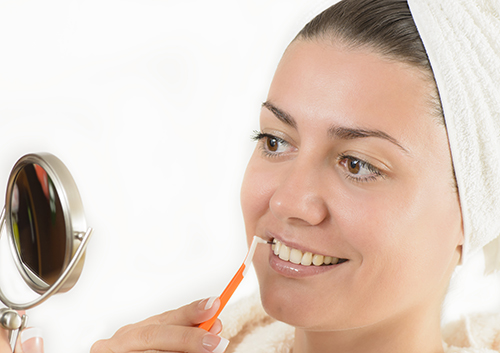Back to School? Remember Your Dental Homework!
September 3rd, 2025

It’s a busy time of year. Book lists! Supplies! New clothes! (How did they outgrow those shoes already?) And while you’re preparing your family’s list of back-to-school necessities, here are a few essential reminders to help your child begin the school year with a healthy smile.
- Review
It never hurts to review the basics before the start of the school year, and that holds true for dental care as well! Make sure your child is brushing two minutes twice a day, and using floss or another interdental tool to clean between the teeth. If his toothbrush has been in use since the end of the last school year, it’s probably time to replace it. Bristles are at their best for about three months—after that, they become frayed and worn, and can’t remove plaque as effectively.
- School Supplies for Braces Wearers
If your child is going to school with braces for the first time, send her off with the tools she needs. A travel-sized toothbrush and tube of toothpaste are perfect for a quick brushing after lunch, while dental floss and a threader or dental picks will take care of any after-lunch particles lurking in brackets and wires. Orthodontic wax is a great product to have on hand if a wire or bracket is causing irritation. If your child uses clear aligners or a retainer, make sure a protective case is always close by, ready to use every time the appliance is removed. And it’s a good idea to include the number of your dentist and orthodontist in her contacts in case of emergency.
- Exams
If your school requires a dental exam before the start of classes, be sure to make your appointment at our Dallas office now! Regular checkups with Drs. Sheena Allen, Mark Margolin, and Moein Sadrkhani are vital for preventing small problems from becoming bigger ones, and a professional cleaning will remove the plaque even careful brushing can miss.
A positive, confident start can set the tone for the academic year, so your homework might include monitoring summer reading, providing required supplies, and making sure your child is well-rested and ready to go. You can also help your child to a positive, confident start by monitoring brushing habits, providing the necessary tools for appliance-wearers, and making sure your child is up-to-date with dental exams and cleanings. Because entering the classroom with a beaming, healthy smile—that’s an A+ way to begin the school year!


